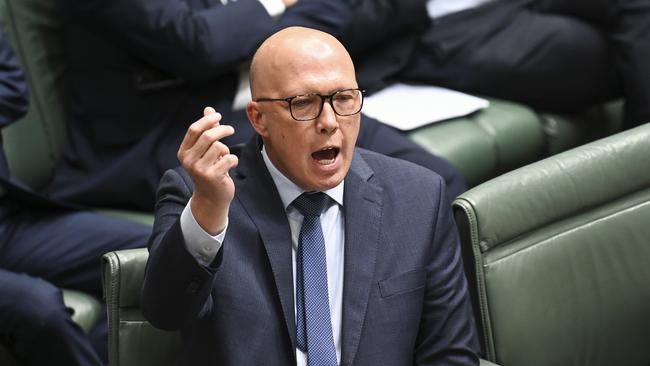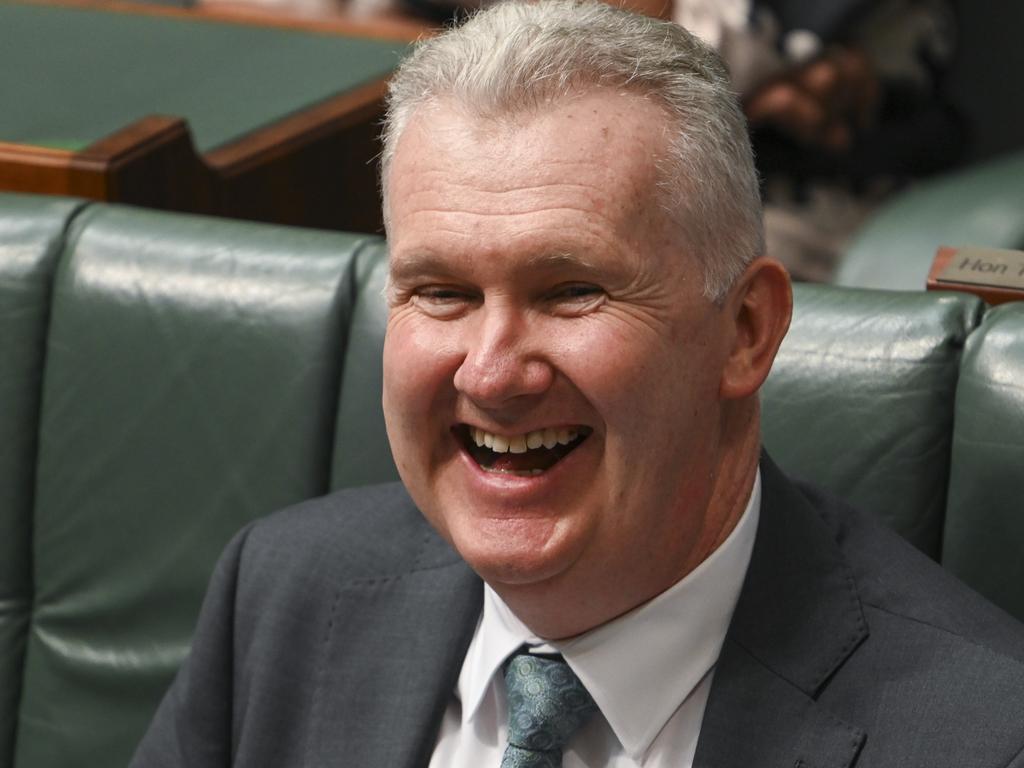Police pressure Peter Dutton to disconnect from law threat
Rank-and-file police have demanded Peter Dutton dump his promise to repeal new right to disconnect laws, warning his ‘ill-conceived thought bubble’ would have a negative impact on first responders.

Rank-and-file police have demanded Peter Dutton dump his promise to repeal new right-to-disconnect laws, warning his “ill-conceived thought bubble” would have a significant negative impact on first responders.
Police Federation of Australia chief executive Scott Weber said the right-to-disconnect entitlement that operates in state police jurisdictions worked well, leading to a better work-life balance for hard working frontline police.
“The PFA objects to Peter Dutton and the LNP proposing to repeal these measures if they were ever to form government,” Mr Weber said. “This is particularly odd considering Mr Dutton once had a career as a frontline police officer and later as a detective.
“I’d ask Mr Dutton to remember when senior police would have made similar calls to him, probably on the old landline.”
The Opposition Leader, a former Queensland police officer, on Sunday vowed to repeal the reform if he were elected and labelled it an anti-productivity policy “outsourced from the Greens”, while in response Anthony Albanese accused Mr Dutton of wanting to make Australians “work more for less”.
Mr Weber said any attempt to wind back, disallow or prevent police being compensated for accepting work-related calls while off duty was “shortsighted, disrespectful, and wrong”.
“Due to the 24-hour role of policing, there are often instances where senior police call an off-duty police officer, sometimes after midnight, requesting information or paperwork that could have been dealt with when the officer was next on duty,” he said.
“As police we understand there are operational requirements for this to occur, but police should always be paid for this otherwise it is simply wage theft.”
Mr Weber said most states had provisions for their police forces protecting police’s “right to disconnect”. Under the provisions, if an officer is contacted off duty there is an entitlement for overtime to be paid, and the costs to the police service increase the longer a call and disruption continues.
Tasmania and the Australian Federal Police are currently in negotiations to achieve the ”right to disconnect” for their police.
“Since this entitlement was put in place in jurisdictions across Australia, I am advised after-hours calls have dropped significantly and senior police have become far more reasonable, respectful, and responsible in their demands,” Mr Weber said.
“The PFA is calling all members of the federal opposition, and those who are unsupportive on the crossbench, to have a significant rethink on Mr Dutton’s position on ‘right to disconnect’ as this will have a significant negative impact for all first responders. Mr Dutton should unwind this ill-conceived thought bubble.”
Workplace Relations Minister Tony Burke said Mr Dutton’s policy stand was targeted against frontline workers, pay rises, job security and “people ever getting time away from work where they know their time is their own”.
Department of Employment and Workplace Relations officials will brief employers and unions about a government amendment to the right-to-disconnect laws that will remove any possibility of companies being exposed to criminal penalties if they breach right to disconnect orders.
The amendment is required after the Coalition last week prevented last-minute amendments to fix the issue.








To join the conversation, please log in. Don't have an account? Register
Join the conversation, you are commenting as Logout